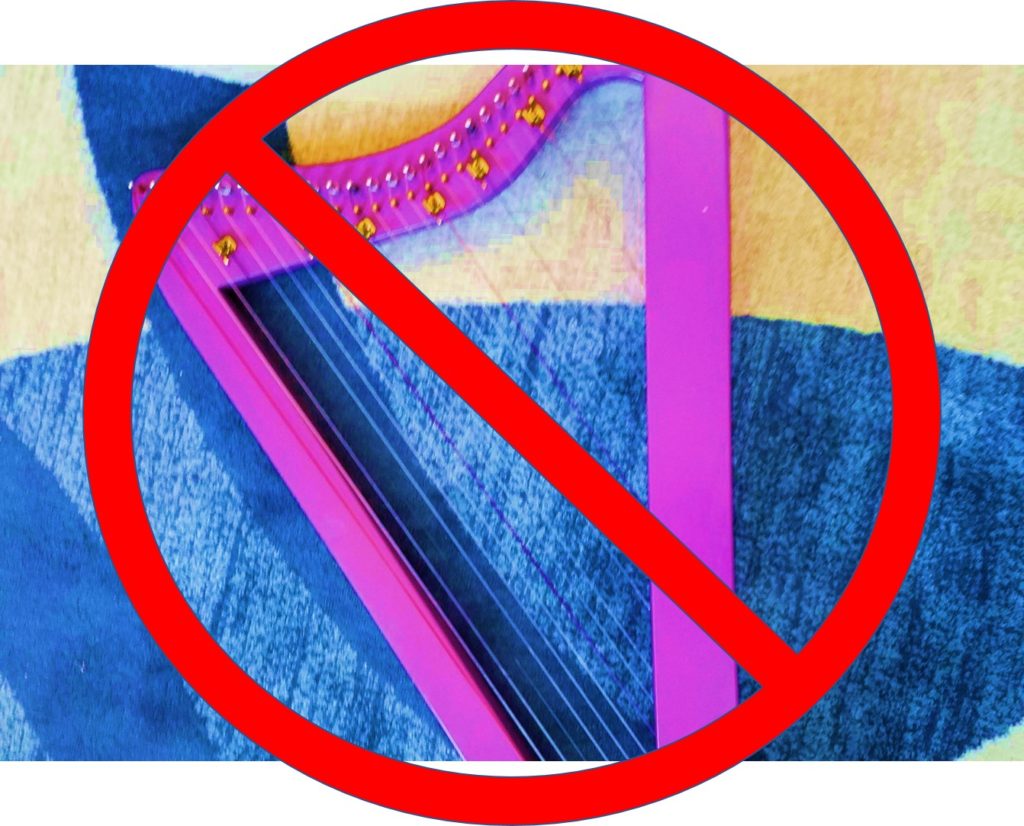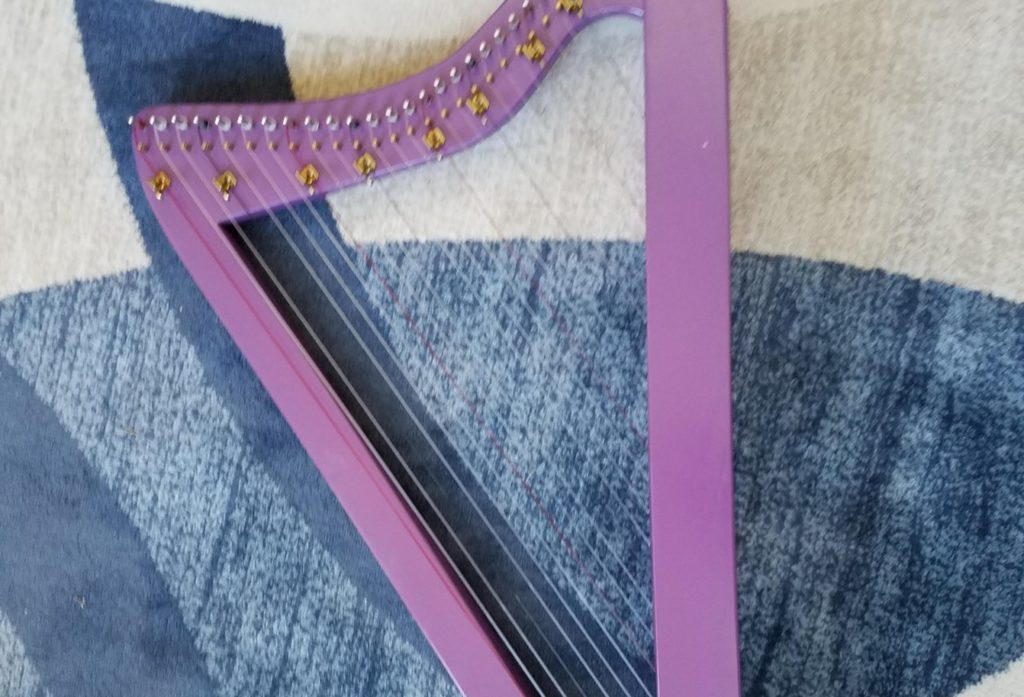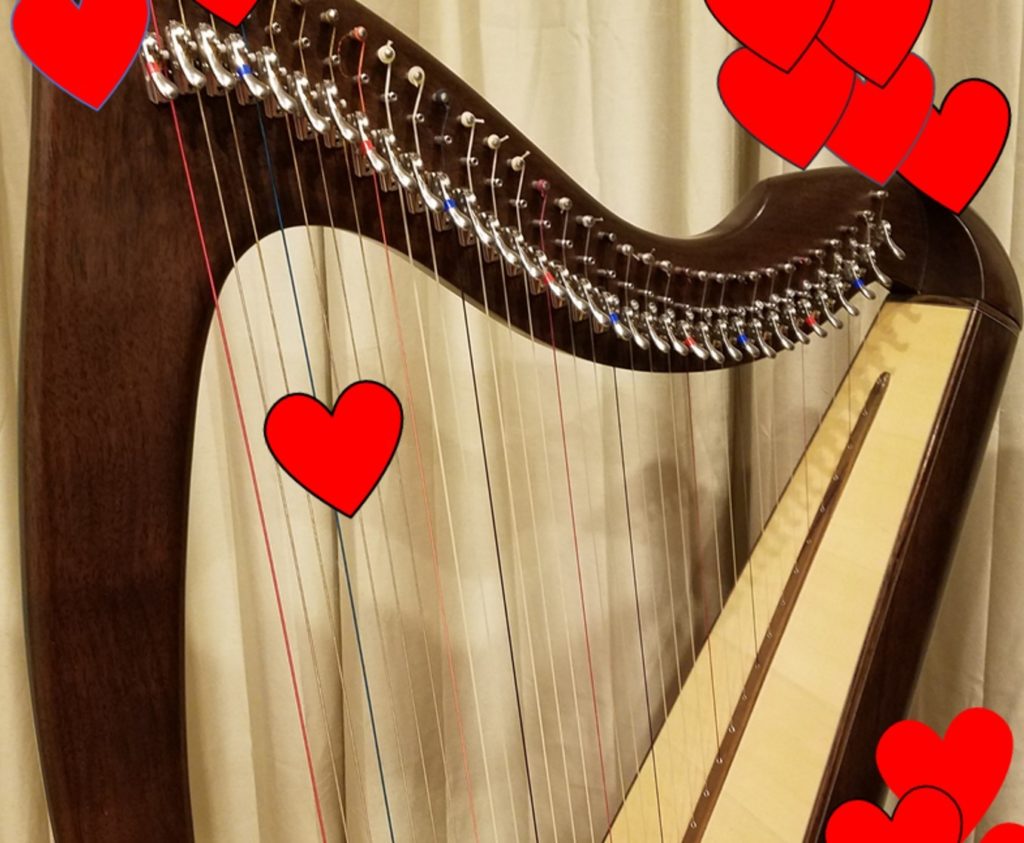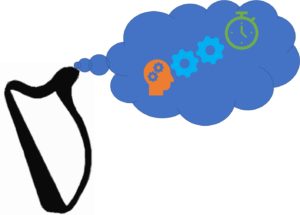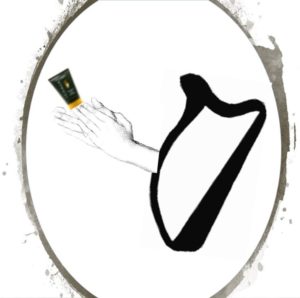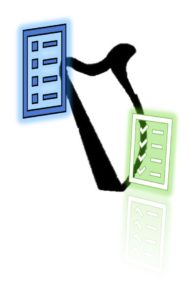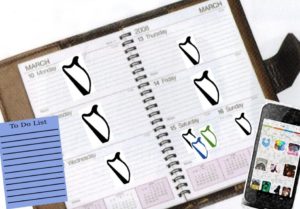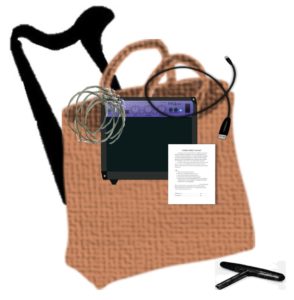There are loads of reasons we play – all of them good and each holding a key to improving your practice and possibly enjoying playing even more. But sometimes –
We don’t play
We don’t make it to the bench. We can’t d-r-a-g ourselves to the harp. We try, but things get in the way and we just don’t get there. Sometimes we just don’t want to. Sometimes it’s for a day. Or a week. Or much, much longer…
Thinking about why we don’t play can be very helpful (that was pretty obvious!). And knowing why we don’t play might actually be more helpful.
Spend a little time thinking about it – when you don’t play, why is that? There are as many reasons as there are musicians, but here are four possibilities –
- Busy-ness. We all have so much going on every day. And there are only so many hours. And it’s already time for bed, and… I know. I get it. I live there too! Sometimes we don’t realize how much work is required for this love affair with our harps. Or other stuff has crept into our schedule, putting the squeeze on our practice time. Or maybe, when we allow ourselves to sit, to sink into the lovely comfort of the space playing creates, we fall under the spell and spend “too long” there. So, the next time, we tell ourselves we don’t have time. And soon we’re not practicing at all! But this strategy doesn’t work. We know we need consistent practice, otherwise we lose ground. Rather than beating yourself up (either for not practicing and for practicing and not getting other things done) – allot, and keep to – a daily, short appointment with your harp. There isn’t much time, but if you could devote just 15 – 20 minutes each day, you would see progress…and still have time to make dinner and watch (insert your favorite TV show here). Make yourself a star chart (like you’d make for your kid’s chores) to reinforce your success!
- Fear of Failure. This is such a silly coping strategy, but I see it over and over – you have a gig coming up and need to learn a piece. The date is looming large and you keep putting off starting on it – yikes! And this is a downward spiral because the longer you put it off, the more likely you’ll be right, and you will do badly. But (here’s the insidious part) if you put it off and do badly – at least you’ll have an excuse. It’s crazy but true. So, in that 15 minutes a day you’ve allotted for practice (see above), be sure that about 1/3 of it is devoted to learning something new. This means that you have allotted this time to work on that thing you need to play at that event that’s zorching up but perhaps more importantly – it means you are well practiced at learning new things (so at least that part isn’t scary!).
- Overwhelm. I know – playing the harp looked so easy. And when you started – it was. But as you go on, there’s so much to learn, and remember, and work on, and do, and it all requires practice! I mean, really – you must practice tuning and reading and body position and hand position and breathing and melodies and harmonies and phrasing and listening and hearing and – oh, never mind, I’m so tired thinking about it, I’m exhausted – I think I’ll go watch a little tv. You do need to practice all these things and more – but – the more you practice them, the easier they become. They become more manageable. In the same way, you can manage your practice time. Give it structure. Know what you want to accomplish. Have a plan. You can use a practice planner (like this one) to be sure you know what you will do. You can also ask for help if you’re lost – ask your teacher or schedule a coaching session (I can help) to decide on an approach you can work with. Then you won’t flounder deciding what to practice – you’ll know what you’ll work on, for how long, over how many practice sessions, and when you’ll be satisfied.
- It’s that time of life. Sometimes other things take center stage – an change to your family, a new job, a relocation, a new hobby. Or sometimes you just need a break – a change of scenery. “It’s not you, it’s me” you might say to your harp. Your harp is like a true friend – it will understand your focus has shifted. And like a true friend, it will be there as you go through these changes. And you’re lucky – your harp will be there to give succor and support when needed. Don’t feel badly about not playing if you’re focused on something else. Would your friend (or your harp) deny your new joy? Or reject you when you come back? No – of course not! So, don’t beat yourself up – enjoy your new focus and come back to your harp for those 15 minutes each day or when you’re ready.
There are so many good reasons to play, don’t let a couple of little things derail you. Just don’t let them throw you so far off you feel like you can’t return. And don’t ever think you’re alone – we have all been there – and we’ll be glad when you’re back!
